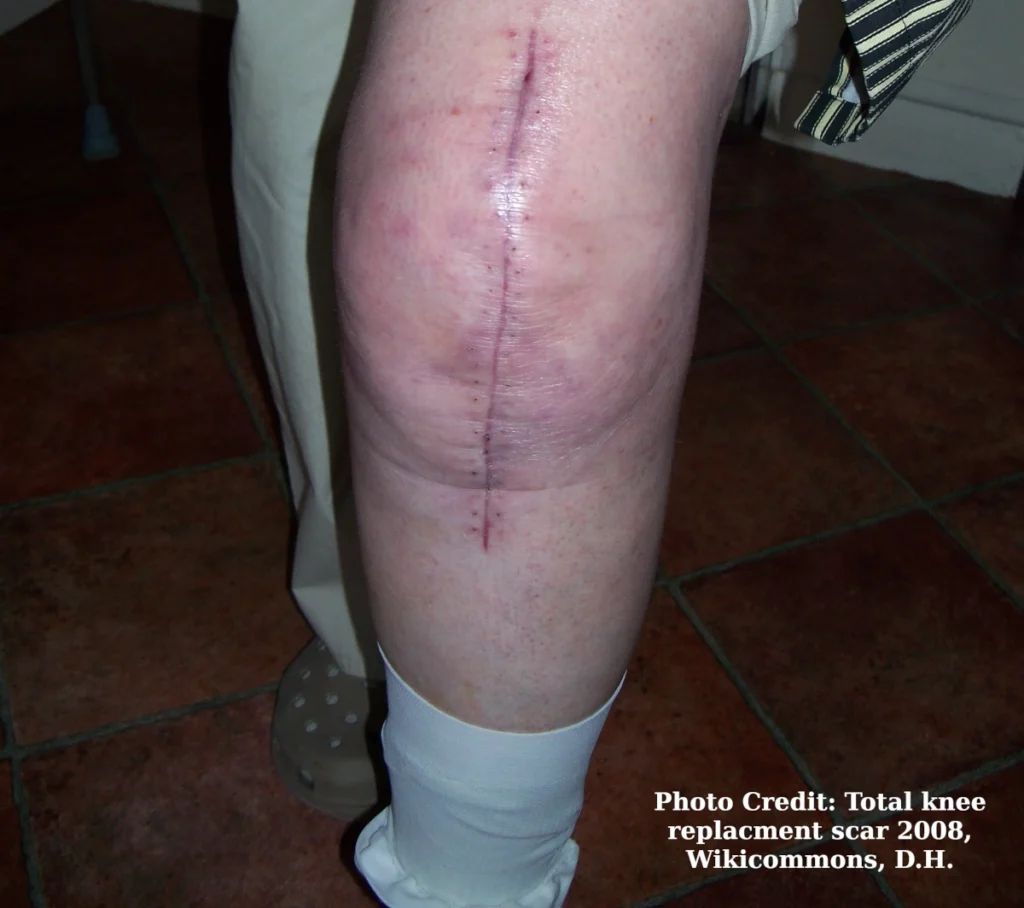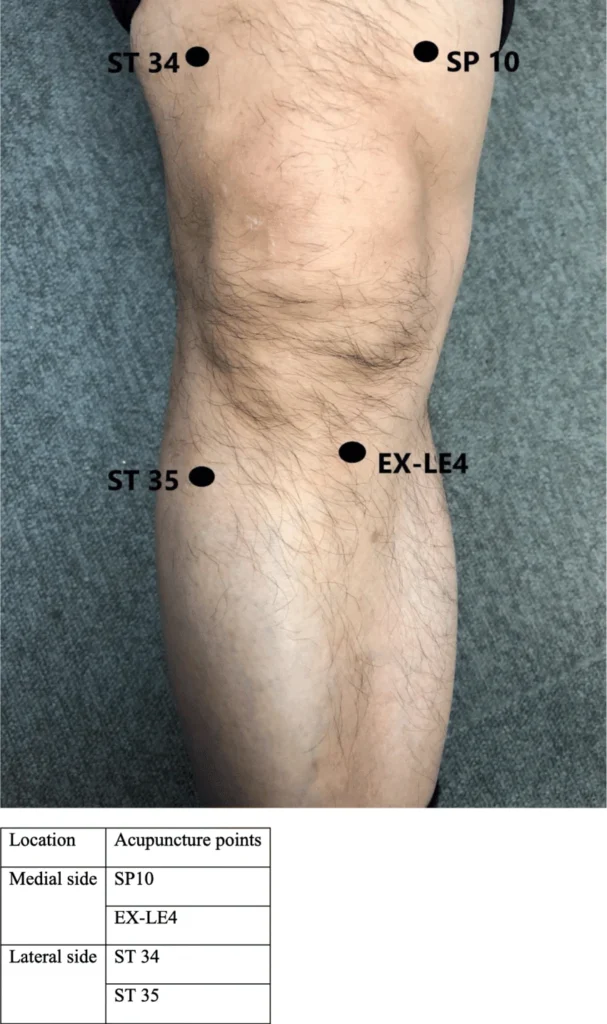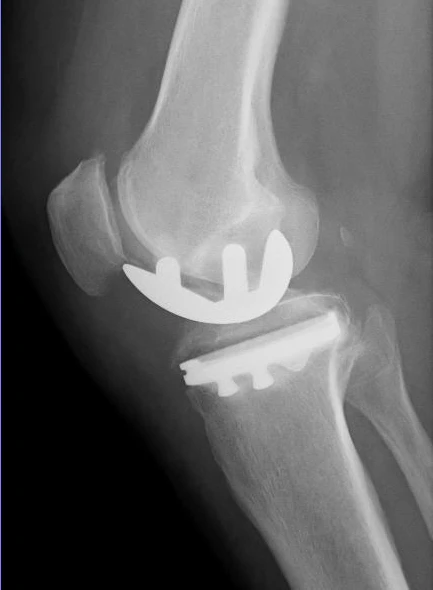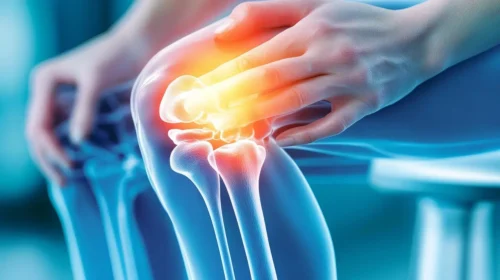This post may contain affiliate links and ads in which we may earn a small percentage of purchases.
Table of Contents
Recovering from knee surgery marks the beginning of a transformative journey towards restored mobility and well-being. Amidst this journey, acupuncture emerges as a beacon of hope, offering an integrative approach to post-surgical care. Is acupuncture after knee surgery beneficial for patients based on my clinical experience? My answer is yes, and the extent of benefits will vary from patient to patient. However it should be one of the first therapies in my opinion along side.
Preparation for Surgery
In our previous discussion on knee injury and deterioration, we explored how acupuncture may have the potential to prevent a patient from going down the path of knee surgery, and even knee arthroplasty.
We often seek treatment or visit a physician only when the problem has significantly progressed, causing constant pain or unbearable discomfort. At this stage, we are already working within a limited time frame and scope.
Our main objective is usually to maintain, extended, and prepare the body and knee prior to surgery. By optimizing pre-surgical conditions through acupuncture, we lay a strong foundation for a smoother recovery process.
Portable dual-channel TENS/EMS device with 24 therapy modes for targeted muscle and pain relief.
 View Device
View Device
A clear and beginner-friendly guide covering over 400 acupuncture points, ideal for students and learners.
 View Book
View Book
A stainless-steel acupuncture pen and gua sha set.
 View Product
View Product
Is acupuncture good after knee replacement surgery?
I want to really emphasize all the benefits of acupuncture which are far reaching provides a stable road to recovery, loosening the burden on already busy healthcare staff, while improving patient outcomes and satisfaction.
Benefits of Acupuncture After Knee Surgery
Scar Formation
Scar tissue, or fibrosis, is a natural part of the healing process post-surgery. However, excessive scarring can lead to discomfort and limited mobility. Acupuncture techniques target fibrosis by promoting circulation and reducing scar tissue formation, ultimately easing pain and facilitating optimal healing.
Through clinical observation, I have seen that needling with the goal of decreasing scarring often leads to a reduction in pain. Based on numerous case studies and patient feedback, it appears that as the size of the scar diminishes, patients experience a corresponding decrease in pain. This possible connection between scar reduction and pain relief highlights the potential of acupuncture in improving post-surgical outcomes.

Pain Relief and Management
Central to the post-surgical experience is the management of pain. Acupuncture offers a gentle yet effective alternative to conventional pain medications, with many patients experiencing a reduction in opioid dependency and NSAID usage. This natural pain relief method not only alleviates discomfort but also promotes overall well-being.

Improving Range of Motion
One of the key goals post-surgery is to regain mobility and function. Acupuncture, in conjunction with acupressure, plays a vital role in improving range of motion by addressing musculoskeletal imbalances and enhancing circulation. By focusing on non-invasive mechanisms, these modalities empower patients to regain independence and confidence.
Post-Surgical Care
How soon after surgery can you do acupuncture?
Following knee surgery, the integration of acupuncture into post-operative care becomes paramount. Typically I will administer treatment around two weeks post-operation. This timeline can be adjusted depending on the patient’s recovery speed. Acupuncture complements traditional medical interventions, including the use of herbs and medications. This natural approach to pain management and healing enhancement provides patients with a comforting and effective option.

The photo above is just an example of some points around the knee. A couple of issues to consider. First you may notice the acupuncture points surrounding the knee, but do not go directly into the patella (knee). There are points that go directly into the knee, but those points don’t have to be used. Acupuncture treatment for the knee can be effectively administered without interfering with the surgical procedure or manipulating any scaring, etc. By carefully selecting local points, acupuncture enhances recovery and pain relief while preserving the integrity of the surgical site.
What is the best therapy after knee replacement?
Collaborative Care Approach
While acupuncture is instrumental in post-surgical recovery, collaboration with surgeons and other healthcare providers is essential. By aligning treatment goals and sharing insights, we create a supportive environment where patients receive comprehensive care tailored to their individual needs.
In addition, electctroacupuncture, herbal therapy, moxibustion, cupping, and acupressure can play vital roles in as potential modalities.
Electroacupuncture
Electroacupuncture combines traditional acupuncture with electrical stimulation, further intensifying its therapeutic effects. Especially in the area of pain management, this can be a component integrated into therapy, if required. In practice, it’s usually ideal to apply the acupuncture solo and then implement the electroacupuncture as needed if results aren’t meeting expectations. It’s a safe treatment that can help in the recovery process
Herbal Therapy
Incorporating herbal therapies into post-surgical care can further support the body’s natural healing processes. Traditional Chinese Medicine (TCM) herbal formulas, tailored to each patient’s specific needs, work synergistic with acupuncture to address underlying imbalances and promote healing.
Aside from TCM, herbs like turmeric, ginger to anti-inflammatory agents like, boswellia, herbal therapies offer a holistic approach to post-operative recovery, minimizing discomfort and maximizing healing potential.
Moxibusion
Moxibution is a stick that is heated, usually made with mugwort, that warms up and be used externally to heat up any acupuncture point to help promote circulation.
Complementary Self-Care Practices
Hot-Cold Therapy
Alternating hot and cold therapy can enhance circulation and reduce inflammation. By applying heat to the knee for 10 seconds followed by cold for 10 seconds, patients can stimulate blood flow and alleviate discomfort, providing relief and potential long-term benefits for knee health.
By integrating these additional treatment modalities and self-care practices into post-knee surgical care, patients can optimize their recovery process and regain mobility with greater ease and confidence.
To Recap The Uses of Acupuncture Post Knee Surgery:
As we navigate life after knee surgery, acupuncture serves as a part of the recovery process. Through its gentle yet powerful interventions, patients can reclaim their quality of life and embark on a journey towards better health. Whether you’re a patient seeking relief or a medical professional exploring complementary therapies, acupuncture offers a path towards a brighter, pain-free future.
Medical Disclaimer: This article is for informational and educational purposes only and is not a substitute for professional medical advice, diagnosis, or treatment. Always consult a qualified healthcare provider with any questions about a medical condition or treatment.




